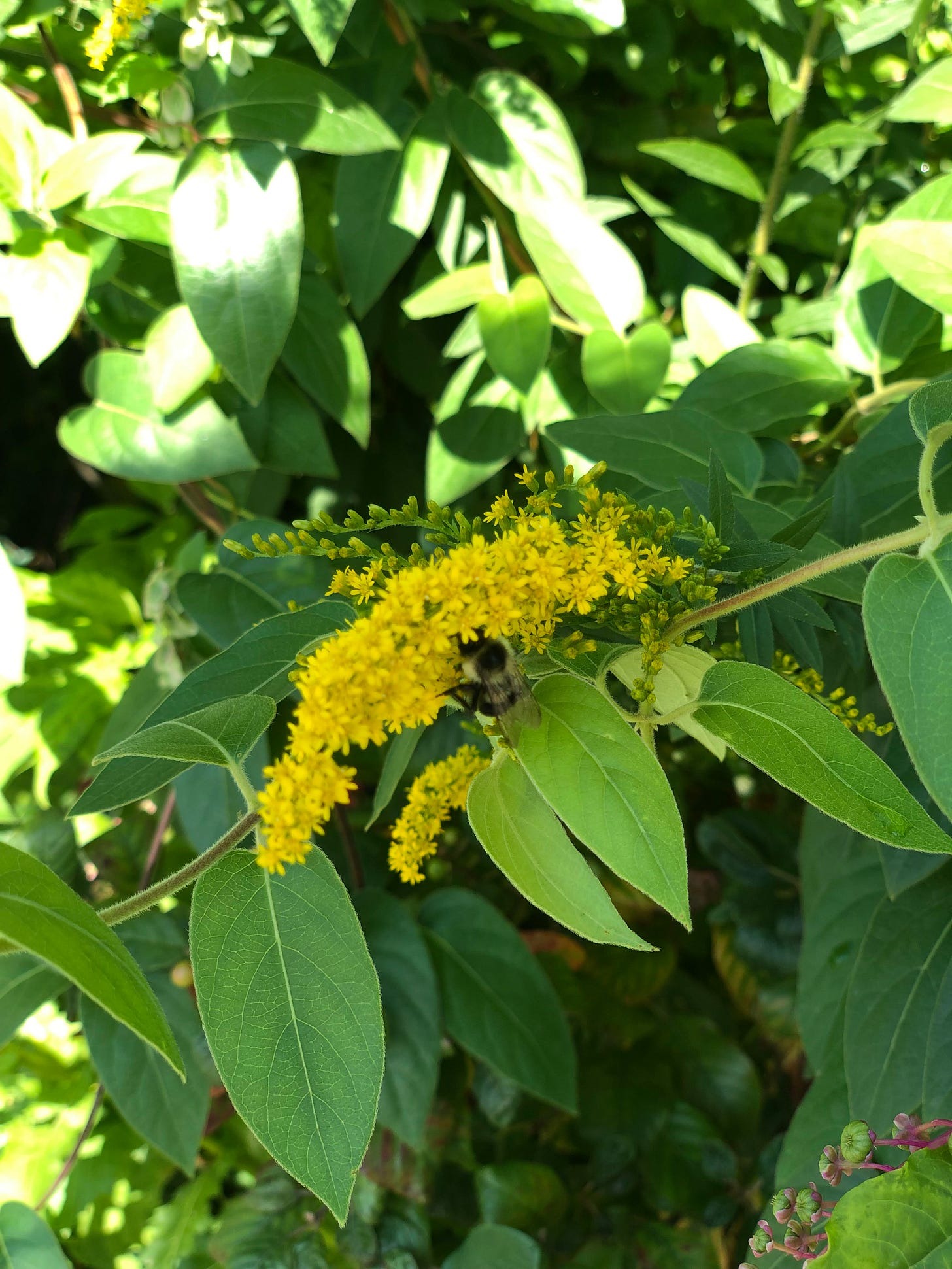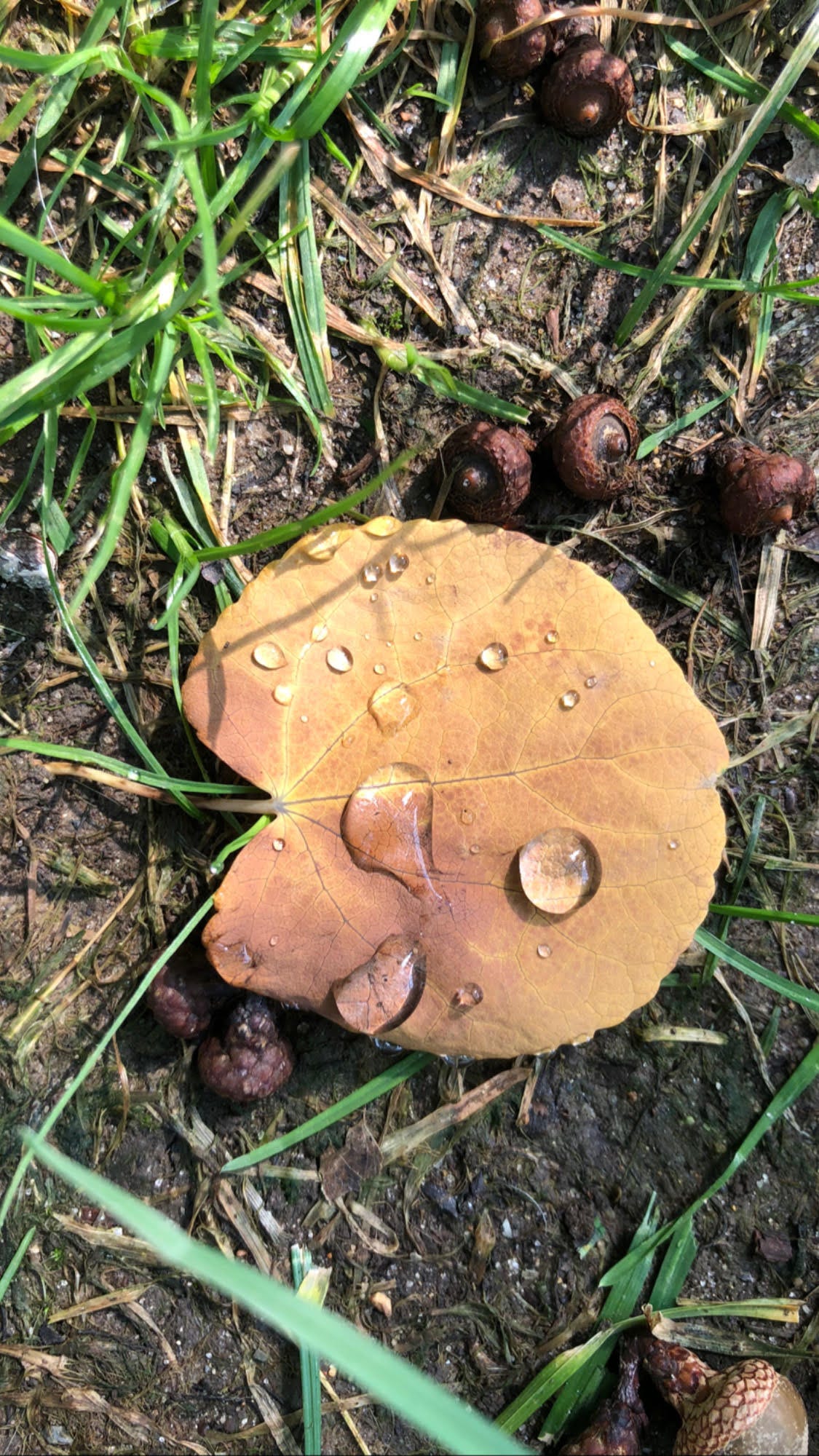When I was in fourth grade, I used to go on “nature walks” with a childhood friend of mine in the small, upstate town of Hilton, New York. By “nature walks”, I mean we’d make our way slowly down the suburban sidewalks, blonde and brunette heads bent towards the concrete, big sneakers treading as quietly as we could, eyes scouring the pavement and the adjoining lawns for anything thrilling that might be worthy of inclusion in our newly minted Nature magazine (a publication invented by us, with only our parents and little siblings as subscribers). Notable treasured sights might include a fuzzy caterpillar moving like molasses in the midst of a sticky July afternoon, a soft grey bunny scurrying soundlessly under a fence, or perhaps a wisp of a white feather floating towards our feet, evidence of a bird friend who had whisked away to the heights only moments before. The holy grail, in my mind, was a frog, a creature I had seen in the pages of my Highlights magazine, but never in the flesh.
More than three decades later, as a fully blown adult by all reasonable definitions, I still find myself poring over the pavement in my present day Boston neighborhood. A walk to a dear friend’s apartment that should take 15 minutes often turns into double that time, as my eyes flit back and forth across the sidewalk, still. En route to an errand, I may stop to bend down and notice the way droplets of water have collected on the surface of a crinkled leaf, after which I marvel at how the leaf looks like a heart, and before I am conscious of the movement, my hand reaches into my tote bag and pulls out my phone camera and I am squatting on the ground, experimenting with the best way to capture the small joy I have discovered, in the midst of a seemingly ordinary Wednesday morning.
While this habit can feel inconvenient at times, it provides me with bits and bobs of happiness, wonder, and joy throughout the days, weeks, months, and years. I do not like rushing. Hurrying about on a too solid deadline, with no space for margins, dysregulates my nervous system and robs me of the spaciousness to dawdle on the way to somewhere else. Moving too quickly does not grant me the pleasure of indulging the curiosities that pull at me as I go from one place to another.
I used to define joy as an event that felt “significant”, “momentous”, “WOW!” As exciting as it seemed to think of giant joys dropping down into our laps each day, this sense of joy often felt wrong with me. I instinctively know that we need morsels of joy, however modest, to sustain us throughout the day. How many “WOW!” moments could I reasonably chase down in order to satisfy this hunger? Would it take more effort than I had to wrangle a huge joy down to the ground and hold it long enough for it to share some of its magic with me? What if I missed it? What if it never showed at all?
A newly crafted definition of joy sits on my shoulder these days. Joy is a seemingly small, often quiet jewel that arises in my heart. When I see a beautiful rose on the cusp of blooming, its pink petals still tucked tightly inside of itself, when I brush my fingers against the barely there moss on the forest floor, when I meet eyes with my cat in a moment of affection that transcends words; this is joy.
Joy is an ache that grounds itself in both happiness and sadness, the bittersweet knowledge that what is today, will not be tomorrow. The fleeting-ness of it all. Joy is a prickle, a twist, a heat in my heart that tells me, “Pay attention. There is something to notice here.”
We might scoff at someone else (or ourselves) for noticing the tiny things that arise on our paths, despite the very tangible flush of joy that accompanies them. Yet, the research shows us that it’s often not the huge wins and thrills that sustain us long term. It is, in fact, the small joys that we continue to seek out and savor, again and again, that nourish us over time. We need a steady drip of humble happiness to fuel our life, and our love.
At times, we can find ourselves doubtful that joy is ours to have, and in dark moments, we might paint any shade of wonder or happiness as excessive, arrogant, extra. This is where we get this practice wrong. In March of this year, while navigating a particularly difficult personal season, I happened to attend a live chat with writer Katherine May on Zoom. Katherine is one of my favorite writers (if you haven’t planned to read her book Wintering this upcoming season, get yourself a copy now), and she was talking about her most recent book Enchantment with a small group of us lucky enough to be on the call. I had picked up the book just three days before and had only made it to the first chapter, but when Katherine opened the floor to questions from the audience, my digital hand flew up.
“What would you tell someone that doesn’t feel worthy of enchantment?”
Katherine looked directly into the camera and smiled. “If someone you really love told you that they weren’t sure they were worthy of enchantment, what would you say?”
I told her that I would assure my dear friend that indeed, they were. She smiled and nodded.
“Enchantment isn’t a frill. Enchantment is necessary for our survival.”
Enchantment, joy, wonder, beauty, happiness, an ache - choose the word that resonates most with you - is not a distraction from the pain or struggle we face as humans. Forget about thriving; at the most basic level, joy is a vital element to our surviving. What if we could see joyspotting as a daily practice as crucial as breathing? How might we direct our attention, even if only for five minutes?
"But I can’t afford to notice joy. It will keep me from my pain. Seeking wonder means I am willingly ignoring all that needs to be put right in my heart, in the world.” I hear myself say.
My Dear, I answer to myself, you can’t afford not to notice joy. To let it sink in, fortify you for everything you are grappling with. Why refuse a gift, even in - especially in - the meanest of times?
My practice of joyspotting flexes from one form to another on any given day. One day, I might hear the siren song of flowers in bloom and in bud form, drawn to the colors and how they change ever so slightly when the butter yellow sun retreats behind a barely there cloud. The ache might arrive in the form of a robin that alights on a nearby fence post, cocking her little head to and fro while I imagine she might show me the way to my own Secret Garden right in the middle of Coolidge Corner. Yesterday, the sound of gently gurgling water found my ears, and I found my eyes seeking a clearer view through the thick wall of hedges into the small lawn beyond the street, needing to know where it came from and how it looked as it flowed.
Joy fortifies and expands us. Some days I feel tiny, tight, and small. I will feel this way again and again (emotions are like waves); there is no cure all for the human experience. True, joy cannot prevent pain. Still, I choose to lace up my shoes, lock the apartment door, and venture out into the urban wilderness to receive whatever joy lay in waiting for me, be it a bug or bark whose texture invites my touch. Bit by bit, the hungry jackals that have hounded my heart, loudly barking about all that’s still unsolved within me, find themselves slightly satiated by the bits of beauty I’ve gobbled up during the day. I’m not often faced with enormous, “WOW!” moments, but boy, do I stumble upon so many small, simply joys. Collecting these scraps into a nest of sorts, I find myself able to rest for awhile in this moment.
Earlier in the morning, I felt tiny, tight, and small. By sunset, I am the sky.
The wonderful poet and human Andrea Gibson recently posted a short video on Instagram about meeting a young writer who expressed they didn’t think they had experienced enough hard stuff in life to be a writer. Andrea shares that this broke their heart, this assumption that "…pain is the only thing worthy of art.” They continue on, saying that they believe that we can, and should, consider “writing from a place of joy.”
This September, I have noticed a resurgence of bees of all kinds, making their way from flower to flower, eager to gather all the pollen they can before the wind arrives from the North and the snow comes. Bees feast in the fall in order to stock up enough sweetness for winter. As the bees feast, let us, too, soak it all in. May we take in what wonder we can, and let it seep into us like honey, food for the heart to keep us sturdy throughout the winter.
(If you enjoy my writing and poetry, you are welcome to explore three of my published poetry collections, New Bird, Wild Unfolding, and Like Gold, and my book of essays on creativity, The Perpetual Visitor. You can also follow me on Instagram (handle is @theperpetualvisitor), where I share my scribbled verses from time to time.)






